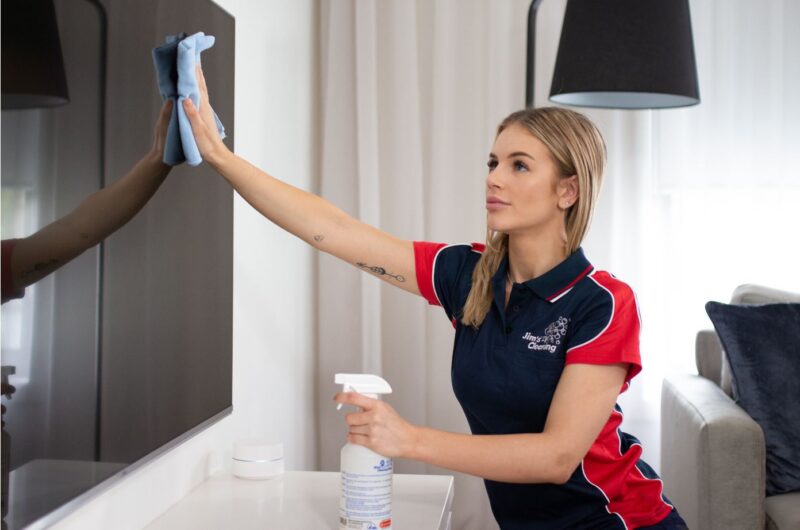Living in a home with a musty smell can be quite unpleasant. Not only does it affect the overall ambiance, but it can also be a sign of underlying issues like mould and mildew.
In this blog, we’ll explore the causes of musty smells, discuss the potential dangers of mould and mildew, and provide effective tips to remove musty smells in the house and maintain a fresh-smelling home.
The objective is not just to mask the odours temporarily but to address the root causes, ensuring a consistently fresh-smelling home environment. By understanding the intricacies of musty smells and their underlying issues, we set out to design a smell-free living environment that is not only pleasing to the senses but also conducive to long-term well-being.
What Causes Musty Smells?
Musty smells in a house can be caused by a variety of factors, and identifying the source is essential for effective removal. Some common causes of musty smells include:
- Mould and Mildew: The most common cause of musty smells is the presence of mould or mildew. Mould tends to thrive in damp and humid conditions, such as basements, bathrooms, or areas with water damage. Check for visible signs of mould and address any water leaks promptly.
- Poor Ventilation: Inadequate ventilation can lead to a build-up of moisture, allowing mould and mildew to grow. Ensure that your home is well-ventilated, especially in areas prone to moisture, such as bathrooms, kitchens, and basements.
- Water Leaks: Persistent water leaks can create damp conditions that promote mould growth. Inspect your home for leaks in the roof, plumbing, or foundation, and repair any issues promptly.
- Wet or Damp Carpets: Carpets that have been exposed to water or moisture and haven’t dried properly can develop a musty odour. Ensure carpets are thoroughly cleaned and dried if they get wet.
- Humidity Levels: High humidity can contribute to a musty smell. Use dehumidifiers to maintain optimal indoor humidity levels, typically between 30% and 50%.
- Stagnant Air: Poor air circulation can contribute to stagnant air and musty smells. Use fans, open windows, and consider using an air purifier to improve air circulation.
- Old Furniture and Upholstery: Sometimes, old furniture, upholstery, or clothing can develop musty odours, especially if they have been stored in damp conditions. Proper cleaning and ventilation can help address this issue.
- Clogged or Dirty HVAC Systems: Mould and mildew can also develop in clogged or dirty HVAC (heating, ventilation, and air conditioning) systems. Regular maintenance and cleaning of these systems can help prevent musty smells.
Locating the Source of Musty Smell
Locating the source of musty smells is crucial for effective elimination, and various methods can help identify the root cause. Visual inspection is the first step, focusing on common mould-prone areas like bathrooms, kitchens, basements, and spaces with poor ventilation. Trusting your sense of smell can guide you to the specific location of the strongest odour. Invest in a moisture metre to quantitatively measure humidity levels in different areas, pinpointing spots with elevated moisture content. Inspect HVAC systems, as they can harbour mould and spread odours.
Pro Tip:
Consider using a UV flashlight or blacklight during your inspection.
UV light can reveal hidden mould and mildew that may not be visible to the naked eye. When exposed to UV light, certain types of mould and fungi fluoresce, making them easier to detect. This technique is particularly useful in identifying mould in dark or concealed areas. Simply scan areas with the UV flashlight, and any fluorescence could indicate the presence of mould, helping you target your cleaning efforts more effectively.
By combining visual inspection, olfactory awareness, and the use of tools like moisture metres and UV flashlights, you can enhance your ability to locate the source of musty smells and take targeted actions to eliminate them from your home.
How to Remove Mould
Clean and Disinfect
Start by cleaning the affected surfaces using a mixture of water and a mild detergent. This initial cleaning removes surface mould and prepares the area for disinfection. After cleaning, use a solution of water and vinegar in equal parts to disinfect the area. Vinegar’s natural antibacterial and antifungal properties make it a powerful mould remover. Apply the solution thoroughly, ensuring all affected surfaces are treated.
Baking Soda Absorption
To further combat musty smells, strategically place bowls filled with baking soda in the areas prone to mould. Baking soda acts as a natural deodorizer and absorbs odours, helping to neutralise the musty smell. Leave the bowls in place overnight or for an extended period, allowing the baking soda to absorb and successfully achieve musty odour elimination.
Activated Charcoal
Consider using activated charcoal bags in areas where musty smells persist. Activated charcoal is renowned for its excellent moisture-absorbing capabilities and odour-eliminating properties. These bags work by absorbing excess moisture, preventing mould growth, and simultaneously neutralising unpleasant odours. Place the bags strategically in closets, basements, or any other areas susceptible to musty smells.
Ventilation
Improving ventilation is crucial for house odour removal and preventing the recurrence of musty odours. Use fans and open windows to increase airflow throughout your home. Proper ventilation helps reduce humidity levels, making the environment less conducive to mould growth. By consistently maintaining good airflow, you create an inhospitable environment for mould, promoting a fresher indoor atmosphere.
Professional Solutions
While DIY methods are effective for addressing mould and musty odours, there are instances where professional assistance is absolutely necessary. Opting for a renowned service like Jim’s Cleaning brings unparalleled benefits to the mould removal process. Jim’s Cleaning experts possess the expertise and experience needed for extensive inspections, identifying both visible and hidden mould. Utilising specialised equipment not commonly available to homeowners, they ensure efficient and thorough cleaning, targeting mould spores and potential sources of odours. Beyond house odour removal, professionals like Jim’s Cleaning offer valuable prevention strategies, home fragrance ideas, and fresh home tips for maintaining a mould-free environment. Choosing a professional service saves time and ensures a high-quality outcome. Jim’s Cleaning, with its commitment to Jim’s Work Guarantee and a skilled team, stands out as a trusted choice for a mould-free and fresh-smelling home, providing peace of mind to homeowners.



